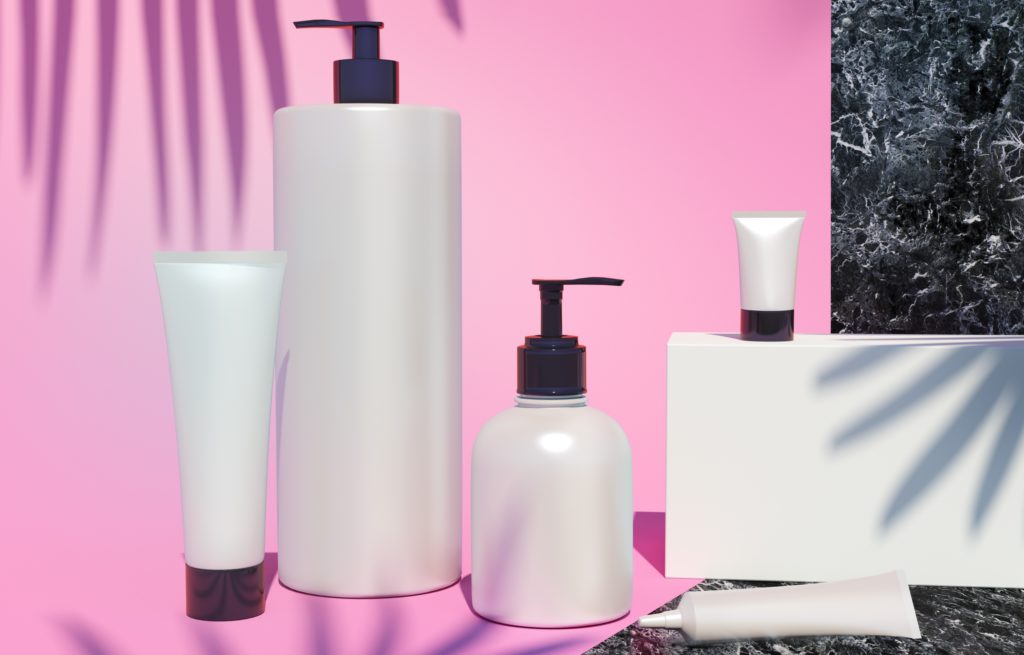Organic Cosmetic Products
Organic Cosmetic Products
Organic Labeling Claims on Cosmetic Products
As with many statements made on cosmetic products, the terms “natural” and “organic” have no specific definition in the Federal Food, Drug, and Cosmetic (FD&C) Act, which may lead to consumer confusion. While the Federal Food and Drug Administration (FDA) has authority for labeling of cosmetics, the agency does not regulate the use of the term “organic”— rather, the U.S. Department of Agriculture (USDA) regulates “organic” claims on cosmetic products. Generally speaking, some cosmetics may be labeled as “natural” and “marketed … as containing plant or mineral ingredients,” while other cosmetic labels may include the claims that they are “organic” or made from “agricultural ingredients grown without pesticides.”
In-Depth Coverage: Importing Cosmetics
USDA Organic Program
USDA regulates the term organic as it applies to agricultural products through the National Organic Program (NOP) Regulations. The NOP regulations include a definition of organic and provide for certification that agricultural ingredients have been produced under conditions that would meet the definition. They also include labeling standards based on the percentage of organic ingredients in a product, including cosmetic products.
Any cosmetic product produced in full compliance with the NOP regulations may be labeled as NOP-certified organic and display the USDA organic seal. Any cosmetic, body care product, or personal care product that does not meet the production, handling, processing, labeling, and certification standards may not state, imply, or convey in any way that the product is USDA-certified organic or meets the USDA organic standards.
However, USDA has no authority over the production and labeling of cosmetics, body care products, and personal care products that are not made up of agricultural ingredients or do not make any claims related to meeting USDA organic standards.
Cosmetics, body care products, and personal care products may be certified to other, private standards and be marketed to those private standards in the United States. These standards might include foreign organic standards, eco-labels, earth friendly, etc.
In-Depth Coverage: Marketing and Advertising Compliance
- Federal Trade Commission (FTC) Advertising Rules
- Made in USA Standard
- FTC Regulation on Environmental Claims
- Adverting and Marketing on the Internet
- Label Claims for Conventional Foods and Dietary Supplements
- Dietary Supplement Advertising: What is FTC's Truth-in-Advertising Law?
- USDA Country of Origin Labeling (COOL)
- FTC Rules & Regulations on Food Advertisement
National Organic rogram is a Marketing Program, not a Safety Program.
Consumers seeking “natural” or “organic” cosmetics may have different expectations about the materials in a product marketed as natural or organic. Consumers may perceive that products that are labeled as “natural” or “organic” have a health benefit. However, FDA has noted that “many plants, regardless of whether they are organically grown, contain substances that may be toxic or allergenic.”
Additionally, FDA has stated that “consumers should not necessarily assume that an ‘organic’ or ‘natural’ ingredient or product would possess greater inherent safety than another chemically identical version of the same ingredient.” Some natural ingredients may cause consumers to have adverse reactions, and FDA has stated that “in fact, ‘natural’ ingredients may be harder to preserve against microbial contamination and growth than synthetic raw materials.”
In 2005, the USDA’s National Organic Program (NOP), which oversees voluntary organic labeling of certified foods, determined that cosmetic products that meet the requirements established under the NOP regulations are eligible for certification as “organic.” A cosmetic product “may be eligible to be certified under the NOP regulations” if the product “contains or is made up of agricultural ingredients, and can meet the USDA/NOP organic production, handling, processing and labeling standards.”
In-Depth Coverage: Country of Origin
- Country of Origin of Imported Merchandise
- Customs Ruling: Country of Origin
- Country of Origin: Food Products
- Country of Origin: Chemical and Pharmaceutical Products
- Country of Origin & Country of Manufacture: CBP vs. FDA
- Country of Origin: Substantial Transformation or Country of Assembly Test
- Country of Origin and Free Trade Agreement
- Country of Origin and Section 301
In-Depth Coverage: USDA-Regulated Products
- Importing USDA-Regulated Food Products
- Import Regulation by USDA Agricultural Marketing Service (AMS)
- Food Products – FDA or USDA Regulated
- Country of Origin Labeling
- Importing Animals, Animal Products, and Biologics into the US
- Importing Meat, Poultry, and Egg Products into the US
- Labeling and Marking of Imported Meat, Poultry, and Egg Products
- USDA National Organic Program (NOP)
- Agricultural Safeguards and USDA Licensing
Four Organic Labeling Categories
The NOP regulations provide four organic labeling categories:
(1) 100% Organic—excluding water and salt, the product must be made of only organically produced ingredients and may use the USDA organic seal;
(2) Organic—excluding water and salt, the product must be comprised of at least 95% organically produced ingredients and may use the USDA organic seal;
(3) Made with Organic Ingredients—excluding water and salt, the product must contain at least 70% organic ingredients and the label may list three of the organic ingredients or food groups, such as herbs, but the product may not use the USDA organic seal; and
(4) specific ingredients may be identified as organic if they are USDA-certified organic, but these products may not use the USDA organic seal or the term “organic.”
In-Depth Coverage: Importing Medical Device
Guidance on customs & logistics solution for traditional and e-commerce importers and exporters
Importer Security Filing (ISF)
An ISF is required when cargo (ocean only) laden on vessel at a foreign port is destined for shipment to the U.S. Under ISF rule, some importing information and details regarding cargo must be transmitted to the CBP at least 24 hours before goods are loaded onto the vessel, or at least 24 hours prior to the departure to the U.S.
Customs Clearance
All goods imported into the U.S. are required to be declared to CBP. Our customs broker will help you stay in compliance with customs laws and regulations and clear your goods quickly and efficiently with our electronic Automated Commercial Environment (ACE) and Automated Broker Interface (ABI) Single Window System.
Freight Forwarding
Looking for a freight forwarding partner? To move your cargo from its current location through customs to its final destination we will partner with you to find the best way for your business. Whatever your transportation, logistics or customs clearance needs, we will do our best to customize a solution for your needs.
Warehousing & Distribution
Our warehouse facility offers great potential for serving as a regional hub with over 145,000 SF storage capacity close to Los Angeles Airport & Los Angeles/Long Beach Sea port. With our extensive experience in freight services, your import/export cargo will be handled quickly and effectively.
Section 321 Entry
Section 321 entry allows importing free of duty and tax for shipments imported by one person on one day having a fair retail value in the country of shipment not more than $800. We provide our resident and non-resident clients with dedicated ACE eManifest solutions for Section 321 entry of all modes of transportation.
Non-resident Importer Program
If you want to sell your products in U.S. marketplaces, but you are a business owner located outside of the U.S. and do not have an entity or presence in the U.S., you need to be established as a Foreign Importer of Record before your products can be imported into the U.S. We can help you.
E-Commerce
The Internet has made it easy to find and purchase items from almost anywhere in the world. Our e-commerce experts will help you find the right solution for your international transportation, customs clearance, and delivery to your final destination. We also provide value-added repackaging, warehousing and distribution services.
Customs Clearance and Import Requirements
- Entry of Imported Merchandise
- What is Section 321 Entry?
- What is Automated Commercial Environment (ACE)
- What is an Automated Broker Interface (ABI)?
- Who is Ultimate Consignee?
- What is Non-Resident Importer Program?
- Country of Origin of Imported Merchandise
- What is the Country of Assembly?
- What is the FDA's Country of Manufacture?
- Marking of Country of Origin on U.S. Imports
- What is Customs Bond?
- Reconciliation Prototype and Bond Rider
- Who Needs a Customs Broker?
- What is Customs Ruling Program?
- Classification of Imported Goods
- How is imported merchandise appraised?
- What are Import Quotas?
- What are Trade Remedy Duties?
- Antidumping Duty (AD) and Countervailing Duty (CVD)
- What is Foreign Trade Zone (FTZ)?
- What is Importer Security Filing (ISF)?
- What is Temporary Importation under Bond (TIB)
- What is In-Bond Process?
In-Depth Coverage: Customs Valuation
In-Depth Coverage: Trade Remedies
FDA-Regulated Products and Import Requirements
- What is Food Safety Modernization Act (FSMA)?
- Prior Notice of Imported Foods
- Food Facility Registration
- Risk-Based Preventive Controls for Human Food
- Risk-Based Preventive Control for Animal Food
- Standards for the Growing, Harvesting, Packing, and Holding of Produce for Human Consumption
- What is Foreign Supplier Verification Program (FSVP)?
- Protect Food against Intentional Adulteration
- FDA Regulated Product in Foreign Trade Zone (FTZ)
- Entry Review Process for FDA Regulated Products
- Country of Origin VS Country of Manufacture
- Foods Regulated by FDA or USDA: What is the Difference?
- Label and Labeling Claims for Conventional Food and Dietary Supplements
- What is USDA Country of Origin Labeling (COOL)?
- Import for Export of FDA Regulated Products
- FDA Regulated Products in Personal Baggage or Sending by Mail or Courier
- International Mail Facility (IMF) and FDA Regulation
- Importing Biological Product Regulated by CBER
- Importing Cosmetics and Voluntary Cosmetic Registration Program (VCRP)
- Importing Drugs into the U.S.
- Importing OTC Drugs into the U.S.
- Importing Veterinary Drugs into the U.S.
- Importing Tobacco Products into the U.S.
- Importing Medical Devices into the U.S
- Importing Food Products into he U.S.
- Importing Radiation-Emitting Products into the U.S.
Quick Link To U.S. Customs & Import Requirements
Design your own logistics
To move your cargo from its current location through customs to its final destination we will partner with you to find the best solution for your business.



















